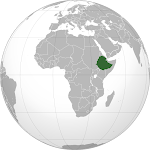Thursday, October 28, 2010
Just Facts - Traditions and Celebrations
Wednesday, October 13, 2010
Fun New Things to Learn
Here is a super cute blog that we found called Happy Girl Hair.
In other fun news, all of our paperwork is now somewhere in Africa! Good job, Assistant Stork!
In other fun news, all of our paperwork is now somewhere in Africa! Good job, Assistant Stork!
Subscribe to:
Posts (Atom)




